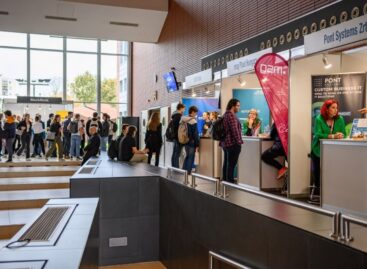Berlin congress: when a storm is raging
What were the topics discussed by the leaders of companies present in Hungary as well? – Consumers are adapting to the new situation, but display different attitudes to various categories and brands which means that different promotional tools should be used – summed up her presentation Sabine Schnell, a director from the German Nielsen subsidiary. According to the findings of a Nielsen survey, the majority of consumers do not want to change their shopping habits, but increasingly look for promotions. Less than two-thirds are willing to look for simpler alternatives, or for cheaper products. One-third of consumers have turned to cheaper stores and private labels. In contradiction with the above, the frequency of shopping and basket values have both been found to be lower than in the past. Regarding the question of how to respond to these changes, Sabine Schell pointed out the need to alter promotional activities and also spoke about changing unit sizes, raising prises and the repositioning of products and differentiated price increases. For retail companies, it is recommended to build brands for themselves and to focus on an image which emphasises low prices. Dr. August Oetker, chairman of the board spoke about the successful positioning of brands. – Excessive supply has appeared in terms of both new products and information which is making consumers feel increasingly uncertain. Two trends are emerging in this jungle of consumption: one is to slow down in order to allow more time for decision making, while the other is to build on the rediscovery of emotions. Brands are like lighthouses, which help people in orientation and project authenticity and security. Brands allow people to make easier choices. At the same time, he also pointed out that the private labels of discount chains are becoming serious rivals of traditional brands. Private labels make everyday decisions easier for people because assortments are limited. As a result, undifferentiated, mid-price brands will disappear, because they do not provide any help for consumers in decision making. Tina Müller, senior vice president of Henkel also spoke about the value of brands. Today, Henkel is present in 125 markets and generates annual revenues of EUR 13 billion. Schwarzkopf, Loctite and Persil are their leading brands. Body care accounts for 23 percent of total revenues. Henkel focuses on maintaining a leading role in innovation. They are doing more to get to know consumers than ever before, often conducting consumer surveys themselves. dr. Eckhard Cordes, chairman of the board of Metro began his presentation by emphasising that it is impossible to predict how the financial crisis will effect consumption. Instead, he focused on their plans for international expansion. The Russian, Ukrainian and Chinese markets produce double digit expansion in terms of retail sales. At present, 60 percent of their revenues come from markets outside Germany. C+C accounts for 50 percent of total revenues. He thinks that Eastern European markets are far from being saturated and that the prospects for long term growth are to be found outside Europe. He remarked that “When there is a storm raging, we can build walls, but we can build windmills as well.”
Related news
Related news
40 secure jobs, sustainable solutions – new BURGER KING® in Csepel
🎧 Hallgasd a cikket: Lejátszás Szünet Folytatás Leállítás Nyelv: Auto…
Read more >The Store of the Future opens again at the SIRHA Budapest exhibition! (Part 1)
🎧 Hallgasd a cikket: Lejátszás Szünet Folytatás Leállítás Nyelv: Auto…
Read more >Gross from 600 thousand to 1.5 million: numbers also reduce the anxiety of career starters
🎧 Hallgasd a cikket: Lejátszás Szünet Folytatás Leállítás Nyelv: Auto…
Read more >





